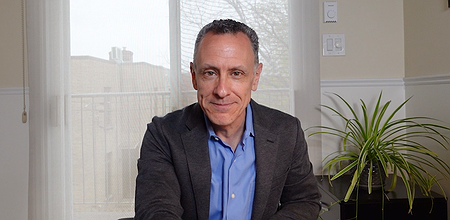A theoretical course illustrated with clinical examples. This course is composed of videos of 5 to 15 minutes each. The PowerPoint of the course to download.
The Theory and Techniques of Short-Term Psychodynamic Psychotherapy
Dr. Stacy Bradley, Registered psychologist
The tools to talk about and soften the unconscious habits that maintain suffering
Excerpt:
- 2h30 of continuing education
- 22 lessons that last from 5 to 15 minutes each
- 1 certificate of achievement
- 1 PowerPoint
- 1 bibliography
- 1 course evaluation
- 4 months unlimited access
- 7-day money back guarantee
- 97% of participants who completed the satisfaction survey declare they would recommend this course to a colleague
Overview
Psychodynamic psychotherapy has proven highly effective in short-term contexts, and its core principles are surprisingly straightforward to grasp. In this workshop, Dr. Bradley will demystify the central theories behind this technique's success, including:
- The development of internal working models
- The role of childhood experiences on adult functioning and attachment styles
- The experiential affective theory
- The dynamics between of internal and external conflicts
You will discover how to leverage transference and the therapeutic relationship as a means to uncover unconscious emotions and defenses responsible for maintaining suffering.
Detailed explanations will be provided on establishing and articulating clinical goals with clients, along with key considerations for treatment.
To guide your interventions during sessions, an exceptionally effective approach known as the Core Conflictual Relationship Theme (CCRT) will be thoroughly explored. CCRT will help you formulate a dynamic understanding of an individual's interpersonal patterns and the suffering associated.
Case studies will illustrate the process of formulating a CCRT and demonstrate its application. An examination of the connection between unconscious emotions, the resultant anxiety, and the maladaptive defenses employed to manage this anxiety will also be covered.
By the end of this workshop, you will be equipped with a repertoire of theories and techniques to help regulate your clients' anxiety, enrich their emotional wellbeing, and soften the persistent habits contributing to their distress.
About the expert

Dr. Stacy Bradley is a registered psychologist with the Nova Scotia Board of Examiners in Psychology and received her doctoral degree (Ph.D) in Counselling Psychology from McGill University. Dr. Bradley is currently the Director of Training for the Halifax Clinical Psychology Residency Program. She provides psychotherapy to adults presenting with a wide range of psychological difficulties including anxiety, depression, complex trauma and abuse, PTSD, personality disorders, among others. Dr. Bradley has worked across a number of clinical and academic settings including community-based mental health, outpatient hospital settings, private psychotherapy practices, and university and college settings.
Learning objectives
- Define the core theoretical principles of Short-Term Dynamic Psychotherapy.
- Conceptualize patient presenting problems from a dynamic framework.
- Implement in-session dynamic interventions to enhance patient insight into unconscious self-defeating patterns and enhance emotional well-being.
Learning material
Syllabus
- PowerPoint
- 1. Introduction
- 2. Outline
-
Dynamic principles and theories
- 3. Core dynamic principles
- 4. Transference
- 5. What is short-term therapy
- 6. Attachment theory
- 7. Internal working model
- 8. Relational theories
-
Treatment framework
- 9. Goals for treatment
- 10. Formulation
- 11. CCRT
- 12. CCRT Examples
-
Case example
- 13. Tape review part 1
- 14. Tape review part 2
- 15. Tape review part 3
-
Navigating psychological dynamics and defenses
- 16. Triangle of conflict
- 17. Unconscious anxiety
- 19. How to work with defenses
- 20. Confront-Challenge
- 21. Specific defenses
- 22. Tape review part 4
-
Conclusion
- 23. Final notes
- Bibliography
CE Credits
Download a certificate of successful completion.
Audience
This training is intended for mental health professionals.
Registration
Ask a question
Do you have a question? Then email us at contact@asadis.net
Frequently asked questions
-
How long do I have access to the course?
After your registration, the course is accessible anytime and from anywhere for 124 days.
-
When does the course start?
That is entirely up to you! When you buy a course, you'll receive an access link that you can activate when you want.
-
Is there a student rate?
Yes there is! To learn more, email us at contact@asadis.net.
You may also be interested in:
Legal notice
The courses offered by ASADIS are accredited by different professional organisations. In addition, ASADIS is approved by the Canadian Psychological Association to offer continuing education for psychologists. ASADIS maintains responsibility for the program.
The CPA’s approval of an individual, group, or organization as a CE Sponsor or Provider is restricted to the activities described in the approved application or annual report form. The CPA’s approval does not extend to any other CE activity the Sponsor or Provider might offer. In granting its approval, the CPA assumes no legal or financial obligations to Sponsors, Providers, or to those individuals who might participate in a Sponsor or Provider’s CE activities or programs. Further, responsibility for the content, provision, and delivery of any CE activity approved by the CPA remains that of the CE Sponsor or Provider. The CPA disclaims all legal liability associated with the content, provision, and delivery of the approved CE activity.





